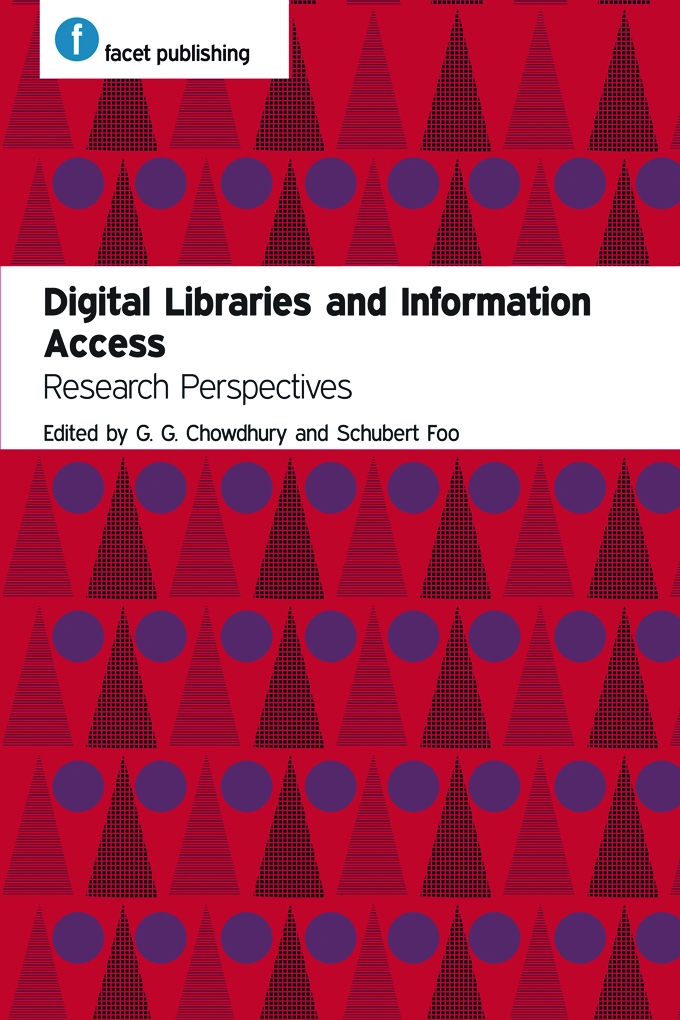Book contents
- Frontmatter
- Contents
- Foreword
- Editors and contributors
- 1 Digital libraries and information access: introduction
- 2 The design and architecture of digital libraries
- 3 Metadata and crowdsourced data for access and interaction in digital library user interfaces
- 4 Information access
- 5 Collaborative search and retrieval in digital libraries
- 6 The social element of digital libraries
- 7 Towards socially inclusive digital libraries
- 8 Users’ interactions with digital libraries
- 9 Digital libraries and scholarly information: technology, market, users and usage
- 10 Digital libraries and open access
- 11 iSTEM: integrating subject categories from multiple repositories
- 12 The usability of digital libraries
- 13 Intellectual property and digital libraries
- 14 Digital preservation: interoperability ad modum
- 15 Digital libraries and information access: research trends
- Index
- Miscellaneous Endmatter
13 - Intellectual property and digital libraries
Published online by Cambridge University Press: 08 June 2018
- Frontmatter
- Contents
- Foreword
- Editors and contributors
- 1 Digital libraries and information access: introduction
- 2 The design and architecture of digital libraries
- 3 Metadata and crowdsourced data for access and interaction in digital library user interfaces
- 4 Information access
- 5 Collaborative search and retrieval in digital libraries
- 6 The social element of digital libraries
- 7 Towards socially inclusive digital libraries
- 8 Users’ interactions with digital libraries
- 9 Digital libraries and scholarly information: technology, market, users and usage
- 10 Digital libraries and open access
- 11 iSTEM: integrating subject categories from multiple repositories
- 12 The usability of digital libraries
- 13 Intellectual property and digital libraries
- 14 Digital preservation: interoperability ad modum
- 15 Digital libraries and information access: research trends
- Index
- Miscellaneous Endmatter
Summary
Introduction
In recent years, there has been an increased use of the internet to search, gather and retrieve data and creative content. The shift to digital libraries has greatly impacted on the way people use physical libraries and the way libraries must collect, store and make information and content available to clients. After 20 years of journal subscriptionprice increases, the traditional commercial publishing model for academic research output is no longer financially sustainable on the same scale and new forms of scholarly communication and open access are becoming integral elements of library collection development activities (Rasmussen, 2009). Underlying these developments in digital libraries is the need to develop an economically sustainable library business model – as library budgets continue to be strained, particularly in the wake of the global financial crisis – while respecting and implementing the copyright entitlements of authors and publishers. This chapter proposes such a model.
The Big Deals
The introduction of publishers’ so-called ‘Big Deals’ (discussed in more detail later in this chapter) in the 1990s, where libraries throughout the world started forming multiple coalitions to negotiate purchases collectively with big publishers, was an initial attempt to adapt to the new world of online publishing (PCG – Publishers Communication Group, 2011). Under the Big Deal system, many university and research libraries combined in groups to buy a single ‘all-you-can eat’ subscription for a set fee and for a set period, most commonly three years (Poynder, 2011). The fees were, and still are, usually based on the cost of the member institutions’ historical print subscriptions. Under this system, universities started purchasing their subscriptions from large publishers in the form of bundled site licences, which allow electronic access to most of a publisher's subscription list at a price that depends on historical expenditure on print journals from that publisher. A publisher might supply a whole list for the price of the sum of the original print subscriptions of a library consortium, with an electronic premium added – generally in the range of between 5% and 15% – with a built-in percentage increase of around 6% per annum (Poynder, 2011). But while bundling electronic journals with print subscriptions provides researchers with extra access to journals, many librarians now find the long-term contract lock-ins inflexible. Elsevier, for one, provides a five-year package.
- Type
- Chapter
- Information
- Digital Libraries and Information AccessResearch perspectives, pp. 179 - 192Publisher: FacetPrint publication year: 2012



